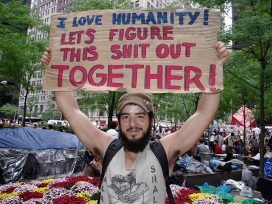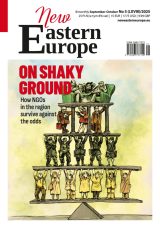Zygmunt Bauman
(19 November 1925, Poznan, Poland – 9 January 2017, Leeds, UK) was Emeritus Professor of Sociology, having served as Professor of Sociology and, at various times, Head of Department at Leeds from 1972 until his retirement in 1990. He was formerly at the University of Warsaw until 1968 and the University of Tel Aviv holding several visiting professorships, in Australia and elsewhere, before coming to Leeds.
Bauman was one of the most prominent social theorists of his time writing on issues as diverse as modernity and the Holocaust, postmodern consumerism and liquid modernity. He has published various books, articles and reviews. Amongst his books are Legislators and Interpreters (1987), Modernity and the Holocaust (1989), Modernity and Ambivalence (1991) and Postmodern Ethics (1993).
Articles
The unwinnable war
An interview with Zygmunt Bauman
Instead of meeting the state’s obligation to protect its citizens, governments throughout the West are calling for more flexibility in areas of life regulated by market forces. One consequence of the retreat of the state is a crisis of legitimacy, which states seek to regain through their response to terrorism. In the Middle East, meanwhile, a gulf has developed between an elite that has profited from Westernization and the impoverished masses. It is the latter who, in the name of religion, are lured into anti-Western extremism, thus perpetuating the vicious circle of insecurity.
A postmodern grid of the worldmap?
An Interview with Zygmunt Bauman
How can contemporary social theories be used to describe our dimensions of human existence? Bauman talks in this interview about the blurred distinctions between postmodernism, late modernity and reflexive modernity and how they apply to current processes of globalisation.




